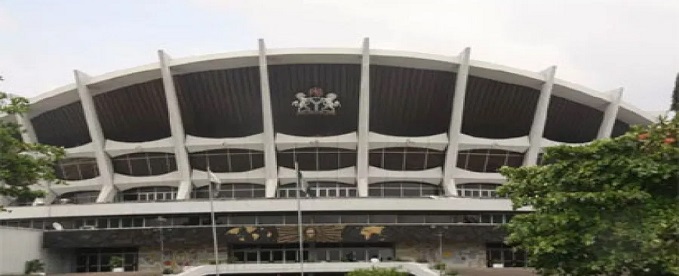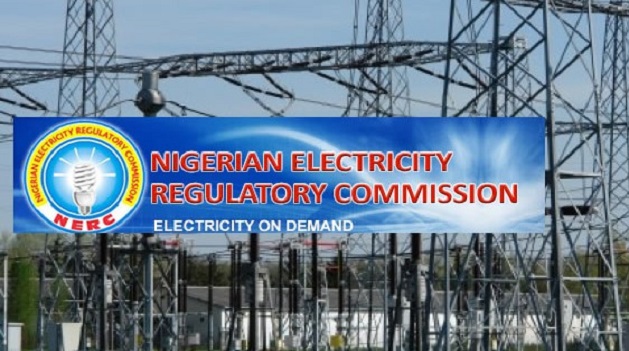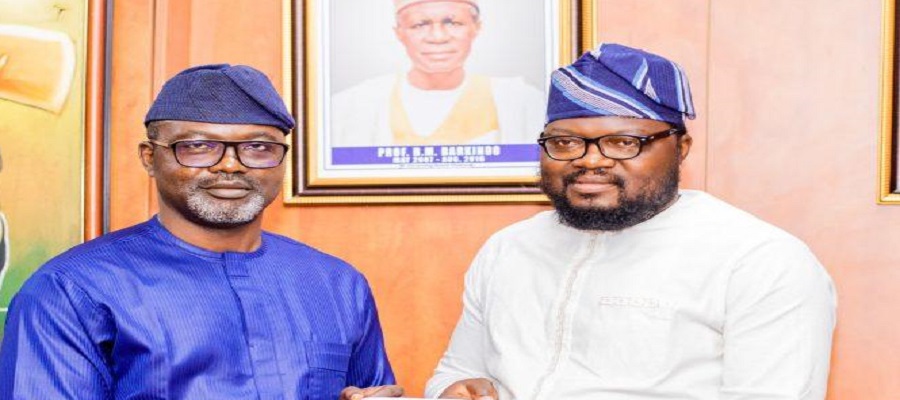News
CBN Takes over National Theatre, to Create Thousands of New Jobs

Central Bank of Nigeria (CBN) on Sunday formally takes over the National Theatre in Lagos on behalf of the bankers committee.

Godwin Emefiele, governor, CBN, said its taking over for transformation would yield million jobs.
Alhaji Lai Mohammed, minister of Information and Culture, said that the planned restoration and upgrade of the iconic National Theatre, in Lagos will generate about 10,000 jobs during and after the exercise
The minister made the disclosure during the formal handover of the edifice and the adjoining 134-hectare fallow land to the Central Bank of Nigeria and the Bankers’ Committee in Lagos yesterday.
He said the 25-billion-Naira project, tagged the ”Lagos Creative and Entertainment Centre Project”, is a Public-Private Partnership (PPP) that will be executed in two phases.
The phase 1 being the restoration and upgrade of the National Theatre to its glory days at a cost of N7 billion.
The phase II will be the development of the adjoining fallow land at a cost of N18 billion.
”Please permit me to start off by making a clarification: this iconic National Theatre remains a national heritage and will not be ceded to any person or group, as some have chosen to frame what we are doing here today. What we are here to do is to hand over the National Theatre for restoration and upgrade and the fallow land within the premises to the Central Bank and the Bankers’ Committee for development.
”The Federal Ministry of Information and Culture holds the keys to the National Theatre on behalf of all Nigerians,” he said at the handover ceremony, which was witnessed by Governor Babajide Sanwo-Olu of Lagos and his Deputy, Dr. Obafemi Hamzat; the Minister of Youth and Sports Development, Mr Sunday Dare; the CBN Governor, Mr. Godwin Emefiele; the Chairman of the Committee of Banks’ CEOs, Mr. Herbert Wigwe, among others.
”The good news is that this project will not lead to a single job loss. Instead, it will create more. Some 6,000 jobs will be created during the construction phase, while the completed project could generate up to an additional 600 permanent and 2000 to 3000 call-on/call-off jobs. This is as good as it gets!” he said
The minister described the handover of the facility as a ‘historic day in the annals of the Creative Industry in Nigeria’, saying the project is a win-win for all involved.’’
”For over 40 years, no major renovation work has been done on the National Theatre, while the adjoining land has been lying fallow. Many attempts to restore the National Theatre have failed. And the Government has no money to restore the complex.
”As you know, this is the hub of the Creative Industry in Nigeria. The National Theatre was established to encourage the advancement of the performing arts throughout the country; to create opportunities for performing artists of the country as well as to aid the promotion of social development and the improvement of the quality of life. In its present state, it is not living to its billing,” he said.
While recalling the glory days of the National Theatre, the minister said the edifice once hosted all Nigerian State Government functions and musical extravaganzas.
According to him, they included the late Fela Anikulapo Kuti and Roy Ayers, Skyy, Shalamar, Whispers, Third world and Dynasty; stage events like Wole Soyinka’s adaptation of D.O Fagunwa’s Langbodo and even Stevie Wonder, who received one of his numerous Grammy Awards at the National Theatre.
Highlights of the first phase include the upgrade of the theatres (the main halls and cinema halls, conference and banquet halls, press hall and the bar); installation of new seats, upgrade of the sanitary facilities, installation of lifts, acoustics and specialist lightings, as well as replacement of the air conditioning, lighting and plumbing.
‘’Phase II will involve the development of purpose-built clusters to provide world class facilities for Nigeria’s Creative Industry, with the clusters having four hubs: Fashion, Music, Film and Information and Technology (IT) hubs.
‘’The creative clusters will be supported by other facilities, including multi-storey parking to accommodate 1,000 cars, a visitors’ welcome centre.
The centre , the minister said will house commercial and retail facilities, as well as administration and management offices. The project is expected to be completed in 18 months.’’
News
LG Launches “Radio Optimism” Campaign to Spread “Life’s Good” Through Music

LG Electronics has launched a new brand campaign, “Radio Optimism,” designed to help strengthen meaningful human connections and spread optimism through shared musical experiences.

This initiative aligns with LG’s brand promise, “Life’s Good,” and addresses the growing challenge of forming genuine relationships in a technology-driven world.
The Radio Optimism campaign seeks to counteract the disconnection often felt in an era dominated by superficial interactions, such as likes and comments on social media. By harnessing the power of music, LG aims to foster deeper bonds among individuals, promoting a more fulfilling life.
“As technology advances, meaningful human connections become increasingly vital to enrich our lives. LG continues its commitment to bringing optimism into customers’ daily lives, staying true to our enduring brand promise of ‘Life’s Good,’” said Kim Hyo-eun, head of LG’s Brand Management Division.
This campaign reinforces LG’s commitment to creating enriching experiences in digital spaces where today’s consumers spend significant time. Building on this mission, LG has continuously engaged with younger audiences through participatory campaigns that bring the Life’s Good philosophy to life.
Last year’s “Optimism your feed” campaign leveraged social algorithms to foster positivity on social media. This new initiative specifically seeks to address the paradoxical disconnection in an era of hyper-connectivity.
“One of the most reliable predictors of happiness is having deep and meaningful relationships,” said Jean M. Twenge, Professor of Psychology at San Diego State University. “Yet today, many people are spending more time online and less time connecting in person. Social media in particular tends to create shallow relationships rather than the deep connections people need.
“It’s common for people to have hundreds of followers but no one to talk to in real life if they need support. We need to build more meaningful connections with those around us. That might turn around the pronounced decline in happiness that’s occurred over the last decade.”
A new global study* from LG on social connection reveals that 68 percent of people find it harder to make real friends, and a third reported having one or fewer meaningful connections in the past month, with 8 percent experiencing none at all.
Inspired by traditional radio’s unique way of connecting people through music and storytelling, the Radio Optimism campaign transforms this concept into an interactive platform where participants can create and send personalized songs to their loved ones.
Users can easily create new songs using AI-powered tools, which are thoroughly trained on a curated music dataset. These tools interpret user prompts to produce unique musical pieces and generate matching album art, providing an engaging and personalized experience. Once generated, these songs can be sent to recipients to deepen their connection and made available for others to discover worldwide.
According to the survey, nearly 9 in 10 respondents believe that meaningful connections lead to a more optimistic outlook on life. By providing a platform for individuals to express their feelings, this campaign aims to foster deeper connections and help individuals enrich their lives while spreading optimism in their own ways.
The campaign website is available in English and Spanish, with plans to support additional languages in the coming months to enable broader participation. The official website can be found at RadioOptimism.lg.com.
News
Nigeria’s Electricity Output Climbs 10.92% in Q1 2025, Boosted by Thermal Plants

Nigeria’s electricity generation rose by 10.92% in the first quarter of 2025, driven by improved operational capacity and better availability of thermal and hydropower plants supplying the national grid.

This is according to the latest report from the Nigerian Electricity Regulatory Commission (NERC) for Q1 2025.
Total energy generated stood at 10,304.47 gigawatt-hours (GWh), up from 9,289.95 GWh recorded in the previous quarter. The increase highlights stronger performance across multiple power plants, supported by improved grid dispatch conditions.
NERC noted that average hourly generation on the grid also grew by 13.39%, rising to 4,770.59 megawatt-hours per hour (MWh/h) from 4,207.41 MWh/h in Q4 2024—an increase of 563.18 MWh/h.
“The hourly generation and the total generation increased by 13.39% and 10.92% respectively in Q1 2025 compared to Q4 2024. This rise is linked to an increase in the cumulative available generation capacity of grid-connected plants,” the report stated.
A total of 19 power plants boosted their output during the quarter, contributing significantly to the overall rise in generation.
Thermal power plants were the main drivers of growth. Out of the 23 thermal plants connected to the grid, 16 recorded higher average hourly output compared to the previous quarter.
Top contributors included Delta_1, which added 157.58 MWh/h, followed by Geregu_2 (71.95 MWh/h), Egbin_1 (68.20 MWh/h), and Afam_2 (68.03 MWh/h).
Hydropower plants also supported the growth, though at a smaller scale. The five grid-connected hydro stations posted a combined increase of 54.93 MWh/h, marking a 4% improvement. Zungeru_1 led with a 23.55% rise, while Shiroro_1 and Kainji_1 grew by 12.21% and 4.80% respectively.
This first-quarter improvement reflects ongoing efforts to stabilize power supply through better plant maintenance, enhanced grid management, and more consistent dispatch across regions.
However, challenges such as fuel supply to plants, equipment reliability, and high operating costs continue to limit the full potential of Nigeria’s power generation capacity.
News
DBI, Miva Open University Partner to Advance Digital Innovation, Education

Digital Bridge Institute (DBI) and Miva Open University, Abuja, have signed a Memorandum of Understanding (MoU) to jointly promote digital technology and academic excellence in computer science and innovation.

Mr. David Daser, president/CEO, DBI, and Professor Tayo Arulogun, vice chancellor, Miva Open University.
DBI, a Federal Government-owned ICT training institute with headquarters in Abuja and campuses across Nigeria’s six geo-political zones, hosted the signing ceremony at its headquarters.
The MoU marks a significant step in formalizing and strengthening the existing relationship between the two institutions.
Signing on behalf of their institutions were
Speaking during the event, Mr. Daser praised Professor Arulogun’s leadership and commitment to academic development, which he said made the partnership possible. He emphasized that unlike many MoUs that remain inactive, this collaboration is set to deliver tangible results.
“We value this partnership and are confident it will meaningfully contribute to Nigeria’s education sector. DBI is fully prepared to implement the agreement and drive an impact across our campuses in Enugu, Abuja, Kano, Lagos, Asaba, and Yola,” Daser said.
He added that the collaboration would strengthen DBI’s National Innovation Diploma (NID) program and other initiatives through shared resources and new opportunities.
Professor Arulogun, in his remarks, highlighted the need for greater collaboration among Nigerian universities, criticizing the prevalent “do-it-alone syndrome.”
“Many institutions prefer to operate in silos, but collaboration is key. Pooling resources and working together will enhance capacity and academic output,” he stated. “With this partnership, we are ready to hit the ground running from student exchange to joint innovation projects like hackathons.”
He noted that hackathons provide platforms for discovering hidden talents and fostering innovation, and Miva is eager to integrate such activities into its academic programs.
Mr. Emeka Nzeih, head of Learning and Development, DBI, outlined the partnership’s key focus areas: student internships, real-world project collaborations, joint research in fields like AI, robotics, and cybersecurity, and shared access to DBI’s ICT labs and equipment for Miva’s students and faculty.
According to Nzeih, the initiative aims to enhance practical learning, foster innovation, and build capacity through collaborative training, research, and mentorship.

 Telecom1 day ago
Telecom1 day agoMTN Nigeria Debuts Game-Changing CPaaS Platform at NextNow Forum

 Telecom2 days ago
Telecom2 days agoNCC Approves MTN, 9Mobile Roaming Collaboration Deal

 E-Financial1 day ago
E-Financial1 day agoNAICOM Issues New Licenses to SanlamAllianz Life, General Insurance

 E-Financial2 days ago
E-Financial2 days agoWorld Bank Approves Extra $65m for Nigeria’s SPESSE

 E-Financial1 day ago
E-Financial1 day agoGTCO to Become First Nigerian Bank to List on London Stock Exchange

 News1 day ago
News1 day agoAMCON Confirms ₦100Bn Sale of Ibadan DisCo Amid Legal Disputes

 E-Business1 day ago
E-Business1 day agoDomain of Deception as Attackers Deploy Spyware Under Guise of Legal Threats

 E-Financial2 days ago
E-Financial2 days agoEcobank Taps Google Cloud to Deepen Financial Inclusion



























